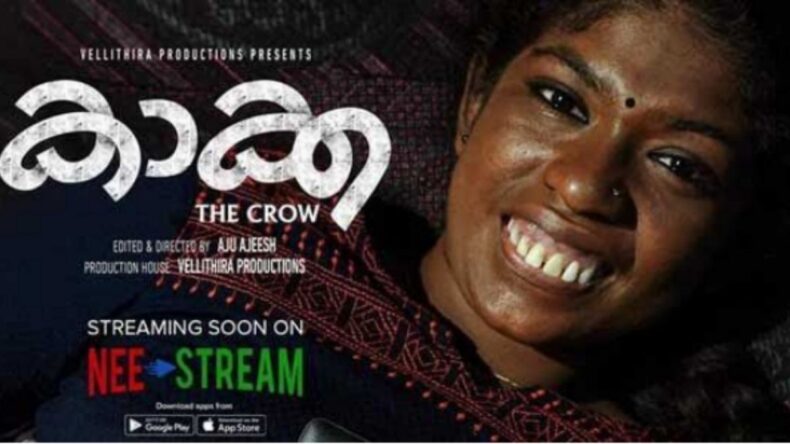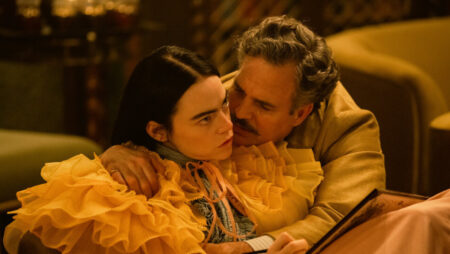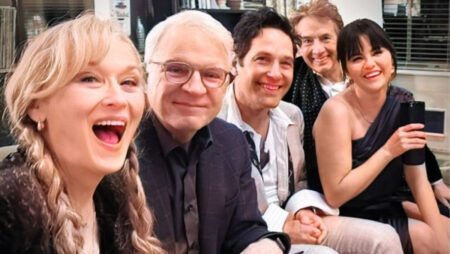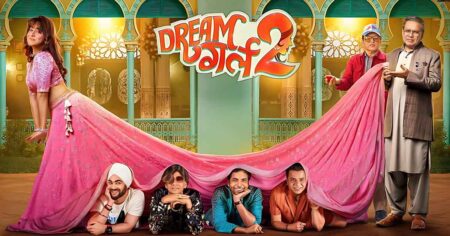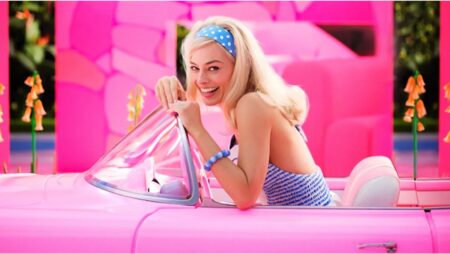About the Film
Lakshmika Sajeevan, Sathish Ambadi, Sreela Nalledam, and Shibukuttan star in Kaakka, an Indian short film directed by Aju Ajeesh.
Vellithira (meaning silver screen) is a WhatsApp group in Kerala made up of film technicians, actors, and hopefuls who pooled their resources to create a short film titled Kaakka, which is now streaming on the OTT platform Nee Stream. Pradeep Babu composed the music for the short film.
The Story
Kaakka is around Panchami, a woman who is self-conscious about her appearance. “We wanted to show her point of view, which is the result of her experiences of not looking like the conventional notion of ‘beautiful’. “It’s her self-perception,” Aju explains.
He clarifies that the film’s title, Kaakka (Crow), does not refer to Panchami’s skin tone. Instead, it shows how she regards herself as invisible, like birds, who, according to Panchami, are also hidden.
She is not a victim but rather a self-assured woman who covers her vulnerabilities beneath the mask of wit. She even says in jest that her dark complexion is a result of o her father’s likeness of Black tea.
The story is set amidst a pandemic. Panchami laments that COVID-19 is wasting the money kept for her dental treatment, which reduced the family’s income. Her final monologue is moving. “The best thing about the pandemic is that I can smile whenever I want.
First time in her life that she accomplishes something like this. Nobody can see my teeth or my face beneath the mask and assess my appearance or smile,” she adds in the film.
Aju, a former wedding videographer, has previously produced three short films: Bra (Malayalam), Psycho (Tamil), and Kunnikuru, a COVID-19-related brief (Malayalam). Kaakka serves as a stepping stone for him into the Malayalam cinema business.
Behind The Scenes
This WhatsApp group, “Vellithira”, of 2016, has 256 members and serves as a resource and networking tool.
Vellithira members had been discussing the possibility of making a film before the pandemic. When the lockdown began, however, that plan went apart. According to Aju Ajeesh, the film’s director, they didn’t know when or how the theatres would open.
That’s when the idea for a short film arose. The video was made possible by donations from the members, ranging from $500 to $30,000. They raised around three lakh rupees, and none of them (cast and crew) received any compensation for their efforts. All of the funds were spent on lodging, food, and equipment.
Man-Made “Beauty”
The implications of beauty ideals are neither unchangeable, inherent, nor inescapable. They are the result of social construction. This indicates that social norms, culture, and social interaction shape what people consider regular and fixed facts about the world.
Peter Berger and Thomas Luckman developed this theory. They demonstrated how an individual’s knowledge and experience of social reality are moulded by their social status within a given culture.
While beauty hierarchies have beneficial and harmful societal consequences, these are not the logical conclusion of natural selection and biological drive. In art, there are many different interpretations of beauty.
The way that more extensive narratives about beauty are socially formed reflects in art and pop culture renditions of beauty.
In her book, Art on My Mind: Visual Politics, Bell Hooks argues that we must theories the meaning of beauty in our lives to educate for critical consciousness, discussing issues such as how we acquire and spend money, how we feel about beauty, what role beauty plays in our lives when we lack material privilege and even essential living resources, the meaning and significance of luxury, and the politics of envy.
Olivia Puerta, the author, claims that conceptions of beauty are based on “biology.”
This viewpoint considers both beauty and discrimination to be inherent human attributes. As a result, it’s difficult to believe that social standards, regulation, and education can make a difference. Beauty prejudices are “normal” and essentially inevitable, according to a recent evaluation of three academic publications in The Economist.
Many feminists fought the war on this beauty culture, leaving behind unshaved legs and an untidy appearance. But time has passed. Sexualized pictures abound, and the world has evolved into one in which no one can afford to pretend that beauty is unimportant.
Kaakka deconstructing the virtues
The crow is commonly symbolic of bad luck and death, and we rarely gaze at it, despite its beauty. However, there is a time when calling a crow is appropriate, such as when making a gift in memory of deceased ancestors or relations.
As a result, a crow might also represent the afterlife and riddles. It’s not always about external beauty; seeing beyond that is what life is all about. And it is what Kaakka is attempting to address. The film, released on the NeeStream platform, has received positive feedback to replicate the quality of a mainstream film.
Though the film’s theme isn’t new, there is an earnestness to it that creeps into your conscience and lingers there for a long.
Apart from the references to dark skin, it also underlines how society assesses people based on their appearance. The desire for a mate, as well as the current Covid times, are discussed.







